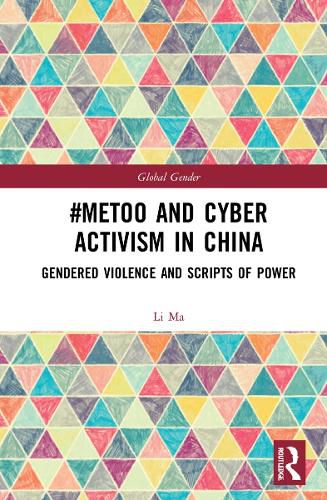Readings Newsletter
Become a Readings Member to make your shopping experience even easier.
Sign in or sign up for free!
You’re not far away from qualifying for FREE standard shipping within Australia
You’ve qualified for FREE standard shipping within Australia
The cart is loading…






This book focuses on the #MeToo movement in China, critically examining how three competing ideologies have worked in co-opting #MeToo activism: China’s official communism, Western neoliberalism, and an emerging Chinese cyber feminism.
In 2018, China’s #MeToo cyber activism initially maintained its momentum despite strict censorship, presenting women’s voices against gendered violence and revealing scripts of power in different sectors of society. Eventually though it lost impetus with sloganization and stigmatization under a trio of forces of pressures: corporate corruption, over-politicization by Western media, and continued state censorship. The book documents the social events and gendered norms in higher education, nongovernmental organizations (NGOs), business, and religious circles that preceded and followed high-profile cases of alleged sexual abuses in mainland China, engaging with sociological scholarship relating to demoralization and power, media studies, and gender studies. Through these entwined theories the author seeks to give both scholars and the general audience in gender studies a window into the ongoing tension in the power spheres of state, market, and gendered hierarchy in contemporary Chinese society.
This book will be of interest to students of gender studies, China studies, media studies, and cultural studies
$9.00 standard shipping within Australia
FREE standard shipping within Australia for orders over $100.00
Express & International shipping calculated at checkout
This book focuses on the #MeToo movement in China, critically examining how three competing ideologies have worked in co-opting #MeToo activism: China’s official communism, Western neoliberalism, and an emerging Chinese cyber feminism.
In 2018, China’s #MeToo cyber activism initially maintained its momentum despite strict censorship, presenting women’s voices against gendered violence and revealing scripts of power in different sectors of society. Eventually though it lost impetus with sloganization and stigmatization under a trio of forces of pressures: corporate corruption, over-politicization by Western media, and continued state censorship. The book documents the social events and gendered norms in higher education, nongovernmental organizations (NGOs), business, and religious circles that preceded and followed high-profile cases of alleged sexual abuses in mainland China, engaging with sociological scholarship relating to demoralization and power, media studies, and gender studies. Through these entwined theories the author seeks to give both scholars and the general audience in gender studies a window into the ongoing tension in the power spheres of state, market, and gendered hierarchy in contemporary Chinese society.
This book will be of interest to students of gender studies, China studies, media studies, and cultural studies